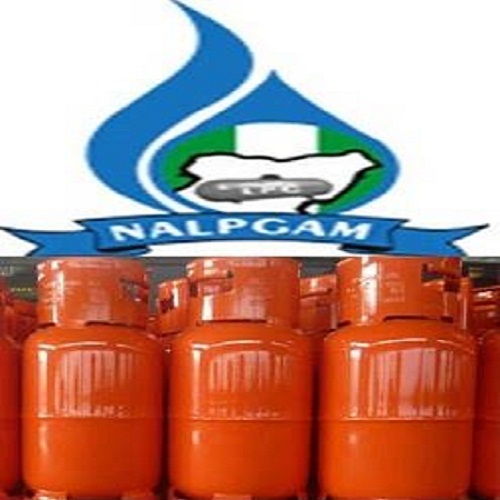The Nigerian Association of Liquefied Petroleum Gas Marketers (NALPGAM) has called on the federal and state governments to heighten the fight against indiscriminate deployment of liquefied petroleum gas (LPG) skids at filling stations without considering the safety element. To them, the merging of LPG and petrol is a time bomb waiting to explode. They say the earlier stakeholders stood up against this deadly practice, the better.
The fight against building liquefied petroleum gas (LPG) skids at petrol stations has been on in the past few years. However, owing to the increasing indiscriminate deployment of such skids at fuel retail outlets, it has become a great concern to players in the industry.
The Nigerian Association of Liquefied Petroleum Gas Marketers (NALPGAM) has taken the fight to states. They had written almost all state governments and are partnering some, such as Ondo, Ekiti, Nasarawa and Ogun, to ensure that LPG, also known as cooking gas, is not sold in the same place with petrol.
After their latest council meeting in Lagos, NALPGAM urged stakeholders, including federal and state governments, regulatory organisations and industry players to fight the menace.
“The governing council of the association has met and, having risen from an emergency council meeting, has resolved to commend the Federal Government on the removal of Value Added Tax (VAT) on domestic LPG and to draw the attention of the Federal and state governments to the increasingly indiscriminate deployment of LPG skids in petrol stations and refill outlets without taking into consideration the risk element involved in this.
“We also resolved to align our association’s position with all relevant government agencies, particularly the Department of Petroleum Resources (DPR) to curb this increasing menace. We want to appeal to the government that in as much as the association is doing so much to complement the deepening of LPG consumption in Nigeria, we are asking the government to create the enabling environment for players, so that we can actually go further to encourage more embrace and usage of LPG in many households in the country.
“We want to appeal to the government in terms of representation that have been made on behalf of the industry as we have we noticed that such representations have not been inclusive because the industry is not well represented when issues are being discussed with the government . There are several facets of the value chain and we are requesting that in subsequent dialogues, discussions and workshops, every facet of the value chain must be well represented so that issues and conclusions taken will be all embracing.”
Buttressing what Essein said, a council member, John Yakubu, noted: “What we have across the world is LPG bottling plants and not filling stations and what that entails is that for LPG bottling plant to exist anywhere, there are certain standards that must be met by the operators – either you have a mini-LPG bottling plant or standard LPG bottling plant.
“There is nowhere fire and petrol co-habit; that is, what the association is saying; and that is the standard we adopt in building our plants. We are appealing to those deploying the skids either by their filling stations or their eateries to, please, adhere strictly to standard operating procedures as laid down by the DPR. You don’t have your own standard procedure, so that Nigeria will be safe and we will be safe as a people. We should not because of profit or what we want to benefit set this nation on fire. There is nowhere LPG is sold alongside petrol in the world.”
The association’s National Deputy President, Oladapo Olatunbosun, said the removal of VAT has brought down the cost of LPG considerably. He noted that LPG value chain includes the terminals, engineers and the plant owners, but the key factor in the chain is the plant owners.
“They are closest to the end-users. They serve as intermediaries between the terminal owners and the end users and if anything goes wrong, they answer for it.
“They have ample investment. Our association’s membership is over 600 and their investment is in billions of naira, far more than you can imagine. Without plant owners, there will be no effective distribution of cooking gas anywhere in the world. The bottling plant companies are the ones that bottle the gas to make accessible to end-users or households. So, the plant owners cannot be left out in any decision-making process because it touches other facets.
“The other facets of the value chain, such as the engineers and importers, don’t work directly in distribution and deepening of us-age of gas. As a very important part of the value chain, our interest has to be properly and fully represented. We don’t want to be represented by proxy in important decision making processes in the LPG industry. We (plant owners) are the key stakeholder in the LPG industry because we invested huge resources to ensure that the product gets to every part of the country. Therefore, decision-making in the industry must be inclusive of all players in the LPG value chain. Making portfolio investors represent the entire value chain in decision-making is not progressive because they don’t know the industry inside out in terms of operation and safety requirements.
“DPR has given a deadline to all skid owners to move their skids from petrol stations because it agreed that marriage of LPG and petrol is a time bomb waiting to explode. DPR has directed them to migrate to mini plants if they couldn’t afford big plants before the expiration of the deadline next year. The regulator noted that such mini plants must be built away from petrol retail outlets. Adherence to that directive will ensure that necessary safety infrastructure and facilities are built in the mini or standard plants but because of the gain, some people are not adhering to the regulatory directive.
Source: The Nation










